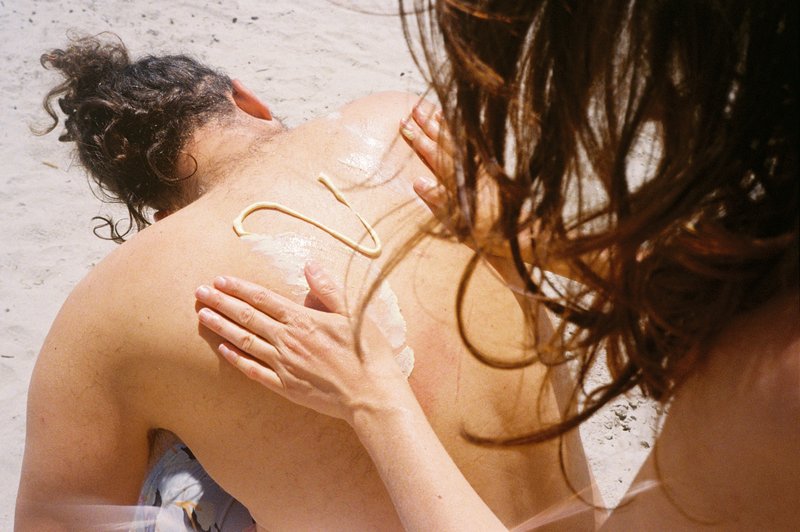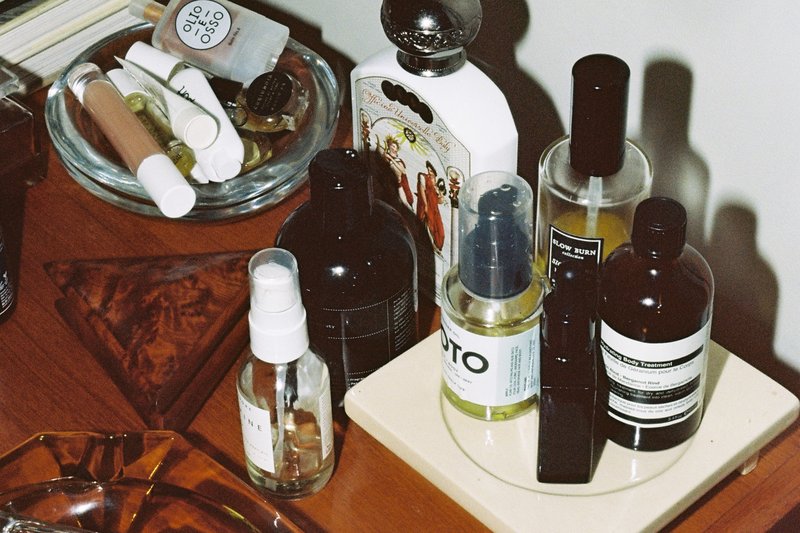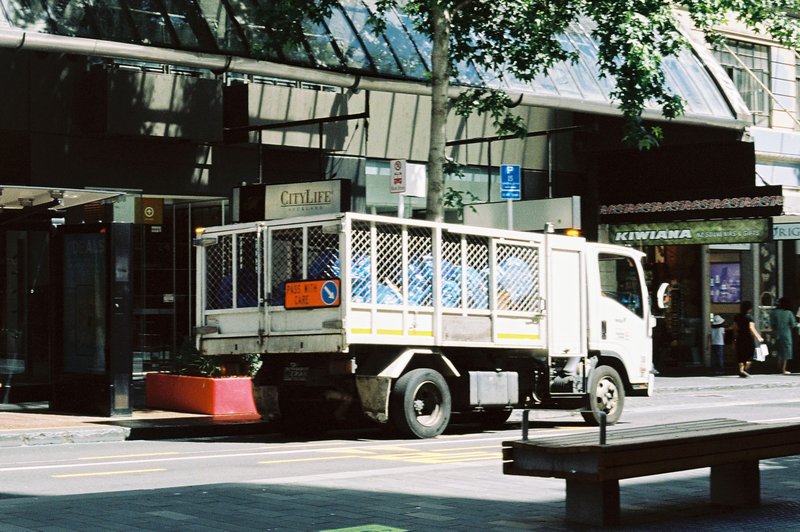I first met Natalie online a few months ago, after she came across my reef-safe sunscreens article where I mentioned hers, Smidge, (previously called Seasick Sunscreen Co). She had sent me a lovely message on Linkedin and showed enthusiasm about doing a piece together. I loved her energy and the fact that she is an independent business owner, in the competitive field of skincare, with long-term thinking for the people and the planet. These people are rare, so I didn't need much convincing to work with her. This is the first fruit of our collaboration, a conversation to discover who Natalie is, her experience, her aspirations and how she built a reef-safe sunscreen brand from scratch. This interview will interest everybody, particularly those with an idea they are afraid to put in motion. I hope Natalie's story will inspire you.
Please tell us about yourself, your upbringing and what led you to pursue Indigenous studies?
Born in 1991 in Takapuna, I grew up near the beach of the North Shore in Tāmaki Makarau. I always knew I had Māori ancestry (Ko Ngā Wairiki Ngāti Apa tōku iwi), but I didn't really know much more, other than a few memories of visiting the marae a few times when I was younger for big whānau gatherings.
When I moved to Te Whanganui-a-Tara (Wellington) in 2017, I heard Te Reo Māori being spoken fluently for the first time and thought, WOW! I felt that I wanted to learn at least some basic reo before I could reconnect with my marae, so I started on my journey, and it has completely changed the direction of my life. Through learning Te Reo, I became fascinated in kaitiakitanga (Māori sustainable land and resource management) and wanted to learn more about mātauranga Māori relating to te taiao (the environment). I did some research online, and that led me to pursuing a Master's in Indigenous Studies.
From there, why did you embrace a career in the Conservation field before creating Smidge, previously Seasick Sunscreen Co?
My upbringing definitely had a lot to do with me pursuing a career in conservation. When I was younger, I remember being 'dragged' along to community working bees—I don't think I was much help, but I did enjoy running around in the bush, making forts and climbing trees. I loved being in touch with nature, literally, and my parents were totally fine with me coming home coated from head to toe in mud! I have a strong memory of planting a tree and being told that I could come back in many years' time to see how tall it had grown, so it's no wonder I ended up choosing a career in conservation, really!
How did you go from National Campaign Manager for Conservation Volunteers New Zealand to creating a sustainable sunscreen brand?
I loved my work as a conservation programme manager, but during a dive trip to Hawaii, I learnt about the toxic chemical UV filters that are found in most sunscreens—including the one I was using at the time! So I went on the hunt for a sunscreen without these nasty chemicals, one that was plastic-free, NZ-made, and that didn't irritate my sensitive skin. I couldn't find one, so I researched online, ordered a bunch of ingredients and started experimenting with natural, DIY sunscreen recipes in my kitchen.
I sent off one of my first test batches to get initial SPF estimation done on it, a formula that was based on a recipe online claiming SPF 30. It failed miserably with only SPF 12! So I was back into the experimentation phase, and after many, many more trials, I finally landed on a formula that had a mean SPF of 44, didn't leave a white cast on the skin and was made with just a handful of simple ingredients. That was almost three years ago, and I am stoked to be launching a new and improved sunscreen formula this summer.

At what point did you understand there was a business opportunity for a new sunscreen in the New Zealand market?
I knew there was a growing awareness about sunscreen chemicals and the damage they can cause at popular dive destinations— particularly in Hawaii, where they recently passed a new bill banning several of the worst sunscreen chemicals. So I thought it was a great time to get into the sunscreen market.
After extensive online searches and visits to my local eco-store, I couldn't find a sunscreen on the shelf that ticked all my boxes, namely:
- NZ made.
- plastic free.
- made with non-nano zinc.
- made with ingredients I recognised and trusted, which would be gentle on my sensitive skin.
I wanted sustainable living to be easy for people—for everyone to be able to make the right choice for the planet without having to compromise on quality and the safety of our skin. That's why Smidge, previously Seasick Sunscreen Co, exists.
How did you come up with the name Seasick Sunscreen Co?
Haha, I get quite a lot of interesting feedback on the name. Honestly, I found it really hard to come up with a name, so when my brother-in-law shouted out "Seasick Sunscreen" during a family brainstorming session, we all laughed—and I liked that it made people smile, so the name stuck! [edit: in 2024, Natalie changed her brand’s name to Smidge.]
What makes Smidge different from other reef-safe sustainable sunscreen brands?
What makes Smidge stand out is a range of positive factors.
First, the formula. Our new vegan recipe is made with only seven ingredients: non-nano zinc oxide, coconut oil, shea butter, candelilla tree wax, caprylic/capric triglyceride [plant-based emollient], polyglyceryl-3 diisostearate and polyglyceryl-2 Dipolyhydroxystearate [both plant-based emulsifiers]. There is no water, meaning a little goes a really long way.
Then, the packaging. It comes in a plastic-free, recyclable tin. Many brands out there claim their packaging is biodegradable or recyclable when this isn't true. For example, I have no idea how you would properly clean and recycle plastic sunscreen tubes and bottles that are being sold and advertised as recyclable in New Zealand.
Finally, on the social aspect, Smidge is a wāhine Māori-led business. I hope to inspire other women to get into business and develop leadership skills through our mana wāhine mentorship programme. We also donate 2% of revenue to local ocean conservation and education programmes.

You were part of the Kokiri Maori business accelerator. How was your experience? What kind of support did you get to build your venture?
I had the most incredible experience. As a solo founder who was making the transition to full-time work on my business, having access to mentors was an invaluable experience for me. The number one priority of Kōkiri is whanaungatanga—relationship building and maintenance, so it is a pretty special environment to be working in. I put the $10K Kōkiri Grant that I received into Research and Development and used the time to fast-track the development of my new sunscreen. Completing the course gave me the confidence to upscale my business. I have made the decision to outsource manufacturing to a small, family-run factory in Auckland, so I can make much larger quantities of sunscreen. Going from 8 kg batches at a time in my kitchen to 112 kg batches is a real step up.
I was attracted to the Kōkiri Māori business accelerator because although it's about learning business skills, it's a kaupapa Māori model, meaning that whanaungatanga (relationship building and networking) is the number one priority. As a solo founder, running a business can be a bit lonely sometimes, but when you have an incredible network of mentors and entrepreneurs by your side, you can achieve so much more than on your own!
What was the most challenging lesson you learnt since you started your business?
Knowing my own limits. When I started Smidge, I was also in a full-time job in conservation and studying a full-time Te Reo Māori course. Needless to say, starting a business took a lot of time and energy, and I got very close to burnout, something a lot of entrepreneurs experience. Covid-19 and then dealing with my own health issues has been a real challenge— I have endometriosis which required surgery and a lot of time out of work, which actually gave me much-needed time to stop and rest. I've now learnt how to say no to things and manage my workload a lot better.
Do you have another job in addition to Smidge?
I quit my full-time job in conservation in December 2021. However, I am currently still studying my Master's of Indigenous Studies full-time alongside Smidge. 2023 will be the first year I work full time on the business.
How do you balance life between your business, family and hobbies?
Balancing business, family and hobbies can be really tough, especially in the early years of business when there is so much to do but not much revenue coming in to pay for help. My family and friends have offered incredible support, and I'm now working on growing the Smidge team, so I won't have to wear ALL the hats ALL of the time. I also really value time in Nature and beach time, so whenever I need a break, you will find me out in the surf or deep in the ngahere tramping.

There is a lot of conversation about the quality and effectiveness of sunscreens. Recently, the government changed the law to enforce brands meeting the standards they are claiming. Can you expand on this?
Until recently, it was voluntary to get your sunscreen SPF levels tested, meaning you could claim any level of SPF without any scientific testing to back up the claims. The new regulations actually don't mean that much for Smidge because we have always been tested independently, and our products already meet the AS/NZ 2604 sunscreen standard.
What advice would you give to someone wanting to purchase good quality sunscreen? What do people need to look for on the label?
Always look for a broad-spectrum sunscreen, meaning it will protect against UVA and UVB rays. But my number one tip is just to read the ingredient list. If it's a mile long and filled with chemical UV filters such as oxybenzone and octinoxate, avoid it! Instead, look for naturally-derived ingredients you recognise. Non-nano zinc oxide is a highly effective mineral UV filter that is safe for our bodies and the environment.
As a skincare business owner, what is your skincare routine? What are the brands you love to take care of your skin?
Now that I am 30, I have realised the importance of wearing sunscreen on my face every day. So I don't forget, I put sunscreen on my face and neck straight after brushing my teeth in the morning. Other than that, I don't wear much on my skin, just coconut or olive oil if my skin is feeling dry from all the surf, salt and sand.

Are you still active in the conservation field? Are you currently involved in conservation projects? Tell us more.
Always! I am currently completing my Master's thesis on novel biotechnologies for controlling invasive wasps. I also volunteer for the Island Bay Heritage Trust as a board member and helper at the monthly working bees. We are restoring an area that was once destined for development into a beautiful native forest, and one day we hope to daylight the stream.
What would you say to people who want to do more for the planet?
Start small, don't try to do it perfectly, and every little action counts.
What is up next on the agenda for you? Are any projects coming up you want to share?
I am so excited to be launching our new plastic-free Daily Face and Body sunscreen this November. Next year I am planning on upscaling production to ensure Smidge is available widely across Aotearoa and into the Pacific. And hopefully, there will be some new products coming out in the near future too!




